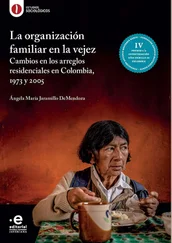“Sorry,” she whispered.
“They’re all right.”
“They’re not.”
“They love you.”
“They love themselves.”
Derek gazed at her levelly. “We aren’t any different,” he said, and she said, “Fuck you, Derek!” just loud enough to be sure her parents would hear.
This was a part of him she professed to dislike — the thing they would fight about, when they fought. The way he would challenge her, reflexively, as though, because she was younger, because she was a woman, because she was less advanced in her studies, because her parents were bohemians, she lacked rigor, lacked the ability to see herself clearly. She fought against his patronizing tone, shouted at him, cursed, pushed him hard in the chest with both hands. His amusement at her rage enraged her further still.
But of course this was what attracted them, too. She liked his immovability, his physical solidity and unswerving beliefs, the way she could fling herself against him until she was exhausted. He liked her volatility, her war against the genetic and cultural heritage she ultimately had no hope of overcoming (and perhaps, at least at times, secretly loved).
And so why, when they got married and she got pregnant, did she give in? She’d been working on a master’s in plant biology at UW, in Madison. Derek told her she didn’t have to quit, she shouldn’t, but she surprised herself by wanting to. And as soon as she did, she felt a profound relief. She drank coffee (until her growing body developed an aversion) and read, and decided that she was going to love motherhood. She made a careful study of parenting books and tallied up their shortcomings in her head even before she’d reached her third trimester; they seemed to her like bad science. When both births went smoothly, when she appeared happy, Derek professed to be pleased. If he missed her old intensity, he didn’t say so. In any event, the only advice her parents could give her now was parenting advice, and they wouldn’t dare. They were proud of their inexpertise. “The shittiest parents in Chicago,” Elisa’s mother used to boast to her friends. Her parents approved wholeheartedly of her early marriage, her abandonment of her studies, seeming to delight in having raised someone so different from themselves, someone who turned out to be conventional after all. Or perhaps Elisa was happy, and they saw this, and it pleased them? Surely it couldn’t be that simple?
No, of course not. But by now it was time to stop caring about what they thought or why they thought it. She had her own life to live. Her own children to confuse.
She raised the boys, talked on the phone with friends, listened to the morning therapist on the radio and laughed at people’s problems. Derek always worked late but it was all right. He didn’t have anybody on the side. He was just busy. He specialized in maritime law as it applied to the Great Lakes. When she began to feel that perhaps she had thrown her youth away, she got a part-time job as a technician at the lab where she had once interned, before she met Derek. It was all right. She kept doing it. They spent most of a decade like this, turning into Wisconsinites. She was happy enough with Derek, with her lab. This is what she told herself.
Years later, when Derek accepted the job at SUNY Reevesport, Elisa considered not going with him. Keeping Sam and staying in Madison. Or even giving up Sam for a little while, staying there alone. Derek didn’t understand. He had actually been offered the job the previous year — it was what they wanted then, a change, maybe a way to break the pattern of Silas’s bad behavior. But then Silas died, and he had to turn it down. Now the college had called and offered it to him again — the other guy hadn’t worked out. He hounded Elisa until she told him — this came to her without forethought — that it was Silas’s grave, she didn’t want to leave Silas’s grave.
“That’s it?” he said.
It wasn’t, but she said, “Yes.”
“But that’s ridiculous.”
“Leaving our son behind?”
“But you’re willing to leave our living son behind.”
She said nothing.
“A grave can be moved,” he said.
He was right — it embarrassed her not to have thought of that.
“That’s not what I want,” she said.
“Then what do you want?”
This was the question Derek could always use to end an argument, because it was the question she could never seem to answer. Even when she did know what she wanted, she often found it difficult to articulate. Where to go, what to do. Should we spend this money on the house, or on a vacation? Do you want to go back to school? Do you want to go out to eat? Should Silas’s friends, the ones who led him wrong, be invited to the funeral, or barred from it? Does Sam need counseling, do we all need counseling? What do you want to do for the rest of your life? What have you ever wanted to do?
The only thing she always knew she wanted was love, was Derek, was her boys, but then even that went wrong, and she didn’t want anything at all. And so she began to feel as though there was no want, there was no you.
What do you want?
They moved to Reevesport together, and the grave stayed behind, an unresolved conflict between them. An artifact. It is still there, and that’s why she’s on the road today, five years later, July 23, 2012. That’s why she has her job waiting for her in Reevesport, in another lab, managing it this time. That’s why she has her art studio and her love of solitude, and an affair she’s been having with a man in the town, the man who runs the frame shop. That’s why she’s where she is now, poised to apprehend the inexplicable thing that’s about to happen.
Her initial method of coping was to ignore everything. To obliterate her usual mode of attention. She didn’t let her eyes or mind rest. She kept moving, doing things of little or no importance. This was in Madison. She didn’t answer the phone or return messages. She threw most mail away. Derek paid the bills, talked to Elisa’s mother on the phone, took Sam to the shrink. She got thinner and no longer drank for pleasure, or for any reason at all. She stopped having sex, while Derek carried on, semi-openly and without evident pleasure, with a colleague. She rarely spoke and didn’t look people in the eye when she did. She did not feel alive.
Then, about a year in, she made a discovery. If she managed to focus on something very small, she could enter into a state of deep concentration that her body registered as satisfaction. Embroidery. She had a kit: a long-forgotten gift from Derek’s mother that she had almost thrown out. Now she spent three months doing almost nothing else. Her eyes were red and tired from incessant close focus. Her fingertips were callused from pricking. She would finish a project — flowers, ducks, it didn’t matter — set it aside, pick up another. This is what she did while they prepared for the move, while Derek packed boxes, marked boxes, hauled boxes.
As she worked she would talk. In her head, she thought. The first time was with the memory of a college roommate, a sullen, lachrymose girl named Naomi with flat damp eyes and a long chin, who had stayed in Elisa’s dorm for only a semester before transferring. She had worn flannel pajamas printed with a pattern of ivy not unlike the one Elisa was embroidering now. The two of them were not friends. They argued over petty things — water in the soap dish, moldy food. These were the kinds of fights they had now, in Elisa’s head, but with a wild and violent intensity: the two of them facing off in the narrow vestibule of their dorm room, shoving each other against the walls, screaming and spitting in each other’s faces. There was something deeply satisfying and fascinating about these fantasies; daily, Elisa took up her needlework with excitement and dread, like a junkie.
Читать дальше












